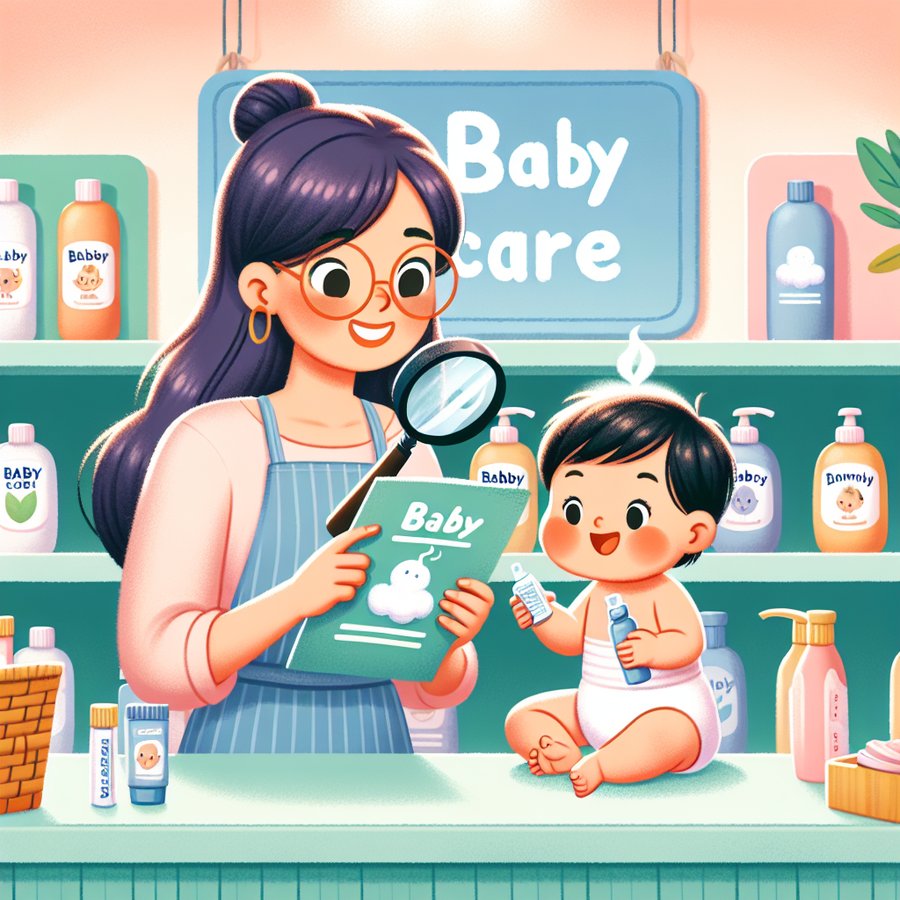Choosing baby skincare products: Chemicals to avoid is a critical consideration for every parent aiming to protect their baby’s delicate skin from harmful substances. As we navigate the vast market of baby skincare, understanding which chemicals pose a risk can seem daunting. Yet, it’s crucial for safeguarding your child’s health and ensuring their skin remains soft and irritation-free.
Understanding Baby Skincare Products
Baby skincare products are formulated to be gentle, yet not all products on the market are free from potentially harmful chemicals. It’s essential to read labels carefully and know which ingredients to avoid. Choosing baby skincare products: Chemicals to avoid includes being vigilant about ingredients that could cause allergic reactions or long-term health issues.
Parents must consider products that maintain the skin’s natural barrier without disrupting its pH levels or causing dryness and irritation. Opting for hypoallergenic and fragrance-free options can significantly reduce the risk of skin problems. However, beyond these common labels, understanding specific harmful chemicals is key.
Choosing Baby Skincare Products: Chemicals to Avoid
When choosing baby skincare products, it’s vital to avoid certain chemicals that can harm your baby’s skin and overall health. Some of these chemicals include Parabens, Phthalates, and Formaldehyde-releasing preservatives, known for their potential endocrine-disrupting properties and link to skin irritations. Products containing Sulfates, commonly found in cleansers and shampoos, can strip the skin of its natural oils and lead to dryness.
Moreover, synthetic fragrances, which are often listed as ‘fragrance’ or ‘parfum’ on labels, can contain hundreds of undisclosed chemicals. These compounds can trigger allergic reactions or dermatitis. Mineral oil, a byproduct of petroleum processing, can clog pores and prevent the skin from breathing. Parents should seek out alternatives that nurture the skin without exposing it to these harmful substances. Here is an external link that offers additional insight into baby skincare.
Safe Alternatives for Baby Skincare
Finding safe and effective alternatives for baby skincare ensures your baby’s skin is nourished without the risk associated with harmful chemicals. Natural oils such as coconut, almond, and jojoba oil can be excellent moisturizers that support skin health without the adverse effects of synthetic ingredients. Similarly, choosing products with natural anti-inflammatory components like chamomile or calendula can soothe sensitive skin.
It’s not just about what to avoid; it’s also about understanding what beneficial ingredients to look for. Aloe vera, shea butter, and vitamin E are other examples of skin-friendly ingredients that provide hydration and support the skin’s natural barrier. For parents looking to dive deeper into safe skincare routines, resources like managing eczema in infants or choosing the right pediatrician can offer valuable guidance.
Implementing a Safe Skincare Routine
Establishing a safe skincare routine for your baby involves more than just choosing the right products. It also means being consistent with skincare practices that protect and nourish the skin. This includes regular, gentle cleansing with mild, chemical-free cleansers and applying moisturizer to damp skin to lock in moisture.
Additionally, understanding your baby’s skin type and any conditions like eczema or diaper rash is essential for tailoring their skincare routine. Utilizing resources such as guidelines for baby’s first bath and dealing with diaper rashes can provide further insights into effective skincare practices. Remember, regular check-ups with a pediatrician can also help identify any skin issues early and advise on the best care routines.
In conclusion, choosing baby skincare products: Chemicals to avoid is a fundamental step in ensuring the safety and health of your baby’s skin. By being informed about harmful chemicals, seeking out safe alternatives, and implementing a nurturing skincare routine, parents can lay the foundation for their baby’s long-term skin health. As always, consulting healthcare professionals and trusted resources can provide personalized advice tailored to your baby’s needs.













